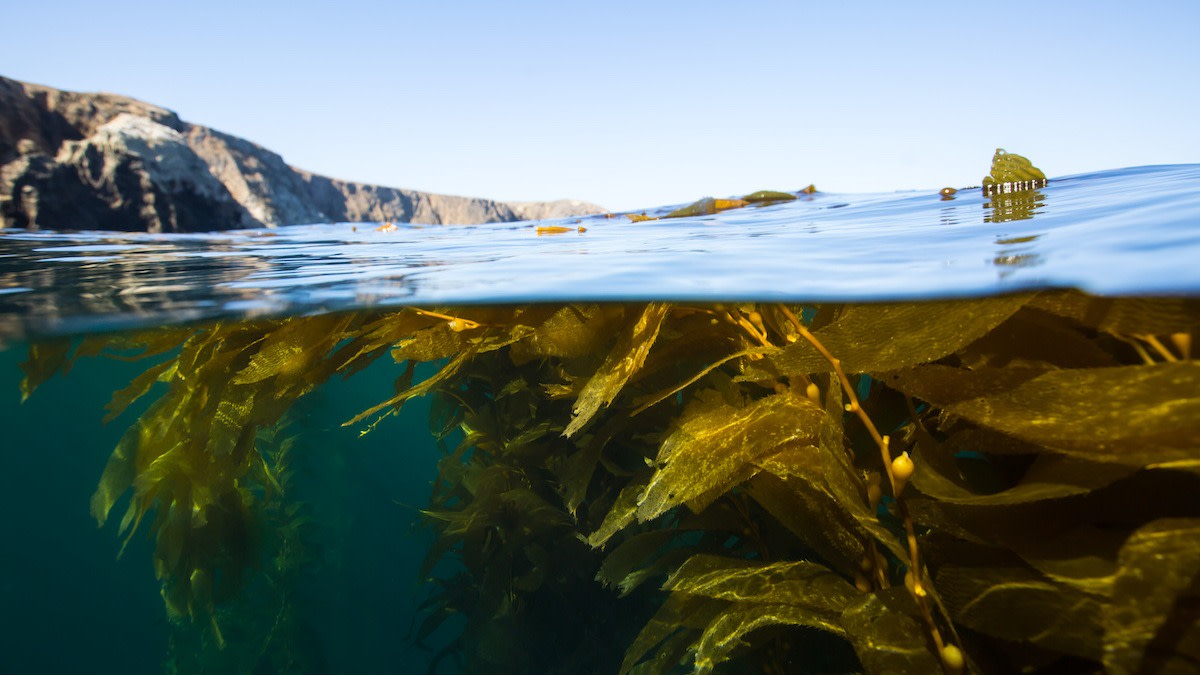Seaweed Fertilizer: How to Make and Use Seaweed Fertilizer
Written by MasterClass
Last updated: Dec 16, 2021 • 3 min read
Seaweed fertilizer, a type of plant food made from fresh seaweed extract, can promote healthy plant growth thanks to its nutrients and biostimulants. It’s also possible to harvest seaweed in a sustainable manner, making it an appealing alternative to conventional fertilizers.
Learn From the Best
What Is Seaweed Fertilizer?
Seaweed fertilizer is a type of fertilizer made from the organic material found in seaweed species such as Norwegian kelp (Ascophyllum nodosum) and bladderwrack (Fucus vesiculosus). In most cases, it is sold as liquid seaweed fertilizer, which makes it easy to mix into garden soil or mulch.
3 Advantages of Seaweed Fertilizer
Seaweed fertilizer comes with several advantages.
- 1. Full of nutrients: Seaweed fertilizer comes packed with micronutrients and trace elements including phosphorus, calcium, magnesium, potassium, and growth hormones (such as auxins and cytokinins). These are essential for plant health and can help balance the NPK (nitrogen, phosphorus, potassium) content of your soil.
- 2. Sustainable: Like many seaweed products, seaweed fertilizer stands out for its sustainability. Underwater kelp grows quickly, which produces massive crop yields that can rapidly replenish themselves. Kelp fertilizer also has a more positive impact on the CO2 cycle than other types of fertilizer, including fish fertilizer and the organic fertilizer you make in your compost pile. This is because kelp absorbs a massive amount of carbon dioxide, some of which can be used by the plants you cover with seaweed fertilizer.
- 3. Great for soil structure: Seaweed comes packed with alginate, an alginic acid compound that keeps seaweed rubbery and malleable to heavy tides. It turns out that when alginic acid bonds with naturally existing metal molecules in your soil, it strengthens the overall soil structure while providing natural aeration. This makes seaweed fertilizer a popular soil conditioner.
How to Make Seaweed Fertilizer
It’s relatively simple to make your own DIY seaweed fertilizer that will fit in perfectly with an organic garden.
- 1. With kelp meal: The simplest way to make seaweed fertilizer is to mix kelp meal with water. Use a ratio of one-quarter cup of kelp meal per gallon of water for proper dilution. Let the mixture sit for two to three days, and stir it each day. You will then have liquid kelp fertilizer to water your plants. It will have a shelf life of roughly one year if you keep it at a cool temperature and out of direct sunlight.
- 2. With fresh seaweed: You can also use fresh seaweed to create DIY fertilizer. Harvest seaweed from the beach, bring it home, rinse it, and let it dry in the sun. Then mix it in with other organic matter like veggie scraps, fish emulsion, and dry leaves in a compost bin. You can then apply this mixture to plants throughout your garden.
How to Use Seaweed Fertilizer
Seaweed fertilizer comes in handy for a number of applications.
- 1. Seed germination: You can spray seeds with liquid kelp fertilizer right after planting to help them sprout. You can also soak the seeds overnight in a diluted seaweed fertilizer solution and then plant them in the ground.
- 2. Seedling root growth: Mixing seaweed fertilizer into a seedling's soil can nourish the microorganisms the plant needs to receive essential nitrogen compounds. This in turn will stimulate new rooting throughout the growing season.
- 3. Transplanting: If you transplant a root ball from one container to another or from one garden plot to another, spray the root ball with liquid seaweed fertilizer. You can also mix seaweed fertilizer compost into the new soil to encourage growth.
- 4. Foliar application: Seaweed fertilizer in liquid form can serve as a foliar spray that goes directly onto the leaves. In most plant species, foliar feeding is less effective than feeding via the roots, but it can be appropriate for plants in dense clay soils where nutrient uptake is tricky.
Learn More
Grow your own garden with Ron Finley, the self-described "Gangster Gardener." Get the MasterClass Annual Membership and learn how to cultivate fresh herbs and vegetables, keep your house plants alive, and use compost to make your community—and the world—a better place.
